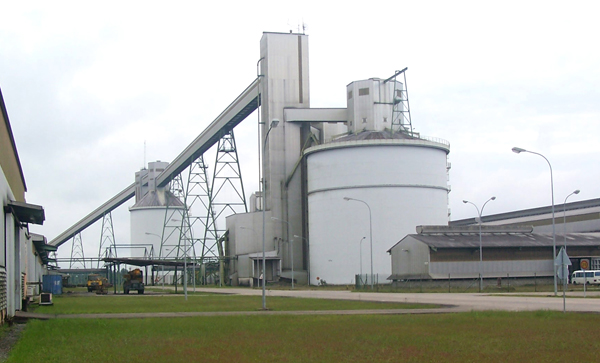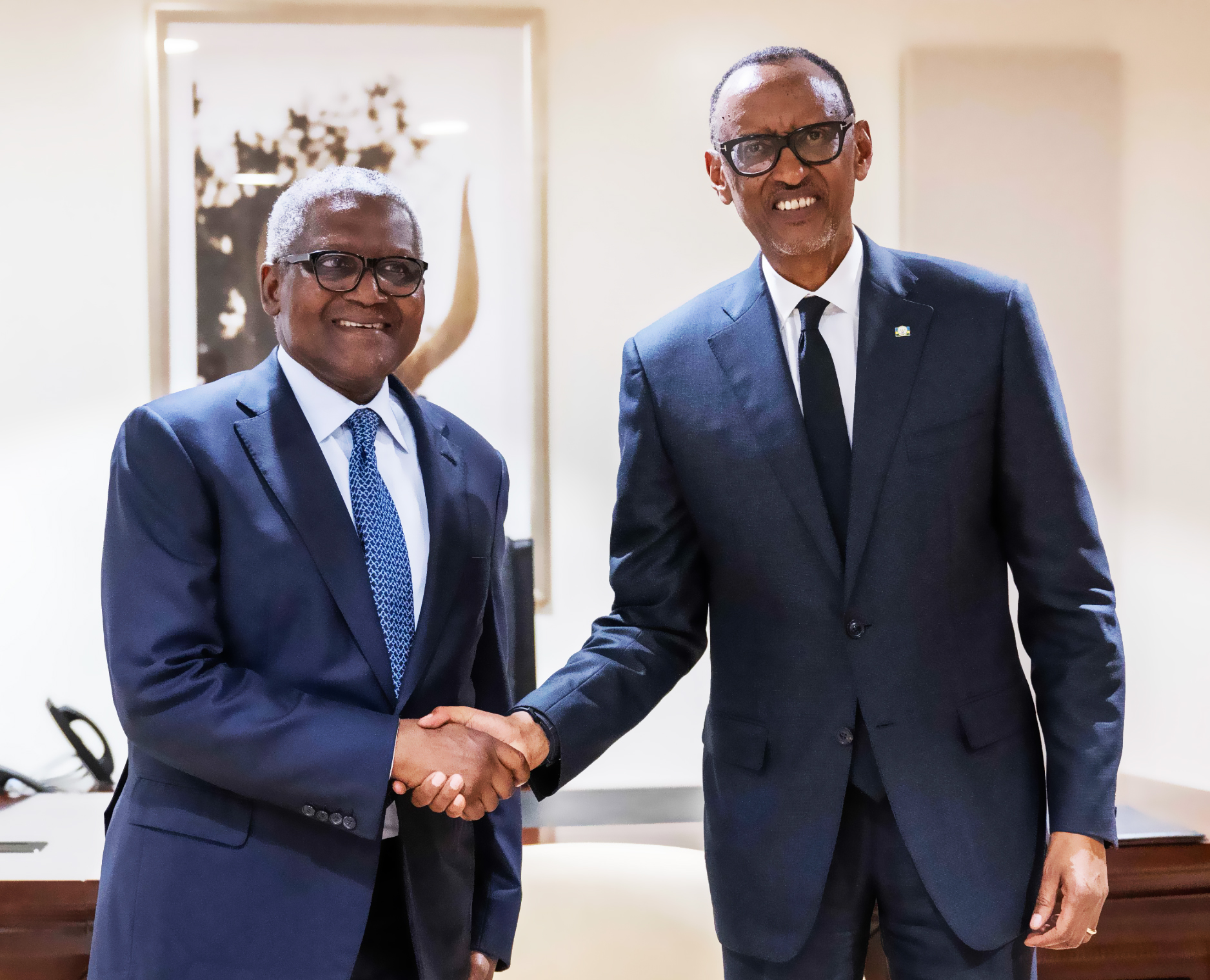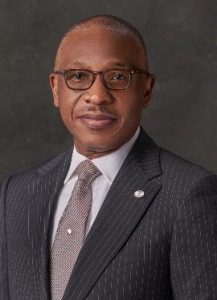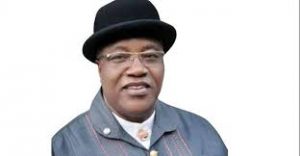Business
ALSCON: Nigeria’s case of self-inflicted economic sabotage?

By Yemie ADEOYE
“I am the greatest obstacle to my greatest dreams.”
–Craig D. Lounsbrough
LAGOS-THE Aluminium Smelter Company of Nigeria, popularly called ALSCON, is Unarguably one of the largest Aluminium smeltering company ever to be sited on the continent of Africa, and also unarguably one of the most strategically located on the planet.
With the proximity of this plant to neighboring African countries around the Gulf of Guinea like Ghana, Togo, Benin, Cameroon, Equatorial Guinea, Gabon, Sao Tome, it can be easily seen that this plant would be an economic booster to Nigeria.
Nigeria’s financial loss to the controversy
The plant was designed to produce 193,000 tons of Aluminium annually at optimal capacity. As at 1997, a ton of Aluminium was sold at 3000USD. What this means is that at full capacity ALSCON was designed to generate approximately 600 million USD annually.
However with the current market price of about US$2,108 per metric ton according to Statista, the plant will be generating a minimum of US$406,844,000 per year, and with a good well structured and business inclined management, the company is capable of generating about a billion dollars annually in the very near future. Sadly, since this bid happened 16 years ago, Nigeria has not generated a dime from ALSCON, thereby defeating the sole essence of the bid process.
The controversy that has surrounded and grounded the activities of this huge economic infrastructure is preposterous, unimaginable for an economy begging for investments and could at best be described as a self-inflicted economic sabotage.
Nigeria goes cap in hand to china, IMF, world Bank, Paris Club and any other institution or country that has capacity to spare a loan, while it continues to systemically and installmentally destroy its money-generating infrastructures. How can this ever be rationalized?
A brief history of the controversy
- In 2004, the Bureau of Public enterprise, BPE called for bids from interested investors willing to purchase the Aluminum Smelter Company of Nigeria, ALSCON in Ikot-Abasi, Akwa-Ibom state, south-south Nigeria.
- The American BFI Group led by a Nigerian-American professional, Dr. Reuben Jaja also came down to Nigeria to Bid for the aluminum smelting plant and emerged the winner, after putting up a bid of $410 million.
- Surprisingly and under controversial circumstances, the BFIG, which was declared winner was not handed the needed documents by Government in order to proceed to the payment stage, and the Russian company, UC Rusal which came second during the bid with a far lesser bid of about $250 million was handed the share purchased agreement, SPA, with all the agreed annexures which would make the plant a successful investment. This allegedly happened under seemingly shady and very controversial circumstances.
- The BFIG immediately went to court to seek redress. The Group lost at the high court and moved to the appeals court, it again lost the case and moved to the Supreme Court where it finally got judgment in its favour in 2012. The judgment was unanimous by all five justices of the apex court.
- Since receiving the Supreme Court judgment in 2012, the BPE has refused to honour the judgment of the court, and in the last eight years since the judgment, the BFIG has gone back to court severally to enforce the Supreme Court judgment, which is in its favour. This culminated in the federal court judgment of December 17, 2019 instructing the BPE to comply with the judgment of the Supreme Court and hand over the SPA to the BFI Group according to the Supreme Court judgment of 2012. The federal high court went further to order the remand of the Director General of the BPE in prison custody for 30 days as a deterrent and for his failure to honour the Supreme Court judgment.
NASS
In 2005, the senate committee on commercialization and privatization issued an order rebuking the presidency for revoking the bid and selling to the Russians at a reduced price, and described the conduct of the presidency as “fraud and corruption against the nation”
The House of Representatives issued another order in 2015 demanding that the Share Purchase Agreement, SPA, which is the bone of contention, should be handed over to the BFIG with all the 17 annexures included in it. In all the BFIG says it has four orders of the national assembly in its favour and saying almost the same thing, why isn’t anyone listening for sixteen years?
Sixteen years of litigation has gone by between the Bureau of Public Enterprise, BPE, and the preferred winner of the bid, the BFI Group, with all the courts of the land, including the Supreme Court sticking to one narrative, which is that the BPE should hand over all relevant and necessary documents to the BFIG, which must include the annexures in order for the group to effect the 10 percent payment according to the laws.
Now, how difficult could it be to obey the rule of law, which governs every normal society? This writer has sighted several documents including court judgments, which alludes to the fact that there is a duly orchestrated strategy to undermine the judiciary of this country and bring it to ridicule before every prospective investors around the world, thereby undermining the national economy of this great nation.
Nigeria’s current reality
Currently, Nigeria is ranking in the negative on all developmental indices. With over 10 million out of school children scattered all over the country. Also ranking as the “poverty capital of the world, it is said that if the country is unable to change its current trajectory, it will be home to 110 million people living in extreme poverty by the year 2030, as against the 90 million people currently in that state of life.
How can a country with such liability amidst infrastructure deficits afford to treat foreign investors who are here to help lift its economy with such disdain and wickedness? What message does this protracted anomaly send to the international community, investor nations and organizations and even to us as a nation?
Now the plant, which was at 30 percent production capacity, is currently down to a paltry 5 percent. The staff strength, which was over 800 about 15 years ago, is now abysmally down to less than 30 people. A company that was valued at about US$1.5 billion has been devalued to around US$100 million dollars according to the KPMG audited financial reports.
The BFI Group
This group is not just an American group with interest in treating a Nigerian infrastructure as the Russians currently do, but a Nigerian professional leads it with deep roots to this country, as the great grandson of the famous king Jaja of Opobo Kingdom in present day Rivers state and with very towering global attainments, especially in the United States of America where he worked with several organizations including the United States federal reserve Bank. e was a lead banking law enforcement participant on various delegations including the U.S. Financial Institution Experts delegation to the Republics of Russia and Hungary.
The gentleman is an asset to Nigeria if only we can recognize one when we see it, and his biggest problem is probably his inability to transact business in the Nigerian. When asked he has said severally that the Group is guided by the foreign corrupt Practices Act of the United States.
After seeing several interviews granted by the president of the BFI group, Dr. Reuben Jaja, including the one he had on the Energie Platform radio show, it does not only leaves much to be desired, but makes it very difficult to decipher how we intentionally shoot ourselves in the foot by making very simple issues become so knotty and difficult.
There is a Supreme Court Judgment issued and written in English. The judgment was very clear, and one wonders how such a judgment can be so flagrantly disregarded by an agency of government without any form of reprimand or call to order? Either by the presidency or the Attorney General of the federation, especially as the agency in question, the BPE, is under the presidency. This sad development can only tarnish the country’s image before the international community and prospective investor nations and organizations if allowed to continue unchecked.
The President of the BFIG made it clear on national television with documents to show, that he and his group have always been ready and willing to pay for this plant as stipulated by law, all they seek from the BPE is the sixteen page share purchase agreement, SPA with the 17 annexures inclusive as directed by the courts, and the moment this duly signed document is handed to the group, they will proceed to comply with the stipulated 2 weeks for payment.
According to him, since the take over of the Plant by the Russian UC Russal, they have continued to strip off the valued assets of the plant and have been intercepted on occasions by the Nigerian Army, which handed over the accosted four trucks to the Nigerian police, all filled with valued assets of the plants.
It is worthy of note that this exact scenario played out in Ajaokuta steel plant when the Indian company, GINL was in charge of the plant. It is on record that the villagers accosted the officials of the company while attempting to cart away assets of the steel plant.
Unanswered Questions
The questions now begging for answers are: what is the offence of the BFIG after it paid the requisite US$1 million expression of interest fee and went ahead to win the bid?
Why is it so difficult to hand over the requested documents even after the pronouncement of the Supreme Court of Nigeria, which is final on all litigations and cannot be appealed?
Could this be the case in a true democracy and in an egalitarian society?
Who is afraid of the BFIG? What does this say about our integrity as a nation?
If the BPE is right and justified in this case, why will the federal High court Abuja commit the Director General of the BPE, Mr. Alex Okoh to a 30-days jail sentence in December of 2019 for failing to comply with the supreme court judgment?
What is the supposed role of the National Assembly in this case of gross economic sabotage on the nation?
What is the role of the presidency, the Inspector General of police, and the Attorney General of the federation and minister of justice under whose watch a unanimous judgment of the Supreme Court is being so flagrantly disobeyed and disregarded by an agency of government?
Nigeria’s past experiences with notable investors
This attitude to foreign investors, especially the ones we invite into our country for economic reasons must stop for image sake, and for the sake of all we hold dear as a nation.
Since the return to civil rule about 20 years ago, Nigeria has had some very sad, but notable experiences with foreign investors, which has not been helpful to our image as a nation.
First it was Sir Richard Branson and the Virgin group, which entered into a partnership with the country to form the Virgin Nigeria Airline, his views about Nigeria after the crash of this partnership is quite sad and a very terrible blow to the Nigerian brand.
We also recall the Ajaokuta steel plant controversy. A major economic booster for Nigeria, which was allowed to rot away even at 98 percent completion. We gave it to the Indian company, GINL, but of course, it also landed in the courts for litigation, even as the federal government seems to be at the receiving end, begging for renegotiations and out of court settlement, as the state of the plant remains moribund!
Very recently, the case of P&ID emerged and has continued to embarrass Nigeria internationally as that supposed economically viable partnership has also gone up in flames and gone from arbitration to litigation in far away United Kingdom.
Now, we have the BFIG in our courts for sixteen whole years. That is a lifetime! It is enough time to revamp and rebuild the entire infrastructure of Nigeria. What sort of nation are we building? Can we really lay claim to a civil society if court orders are shabbily treated with this sort of flagrant disregard even for a judgment of the highest court of the land?
I seize this opportunity and moment to call on Mr. President, the National Assembly and the inspector General of Police, The Attorney General and minister of Justice to grant this issue the attention that it deserves and require. It is a case of monumental national importance, as the image and integrity of our nation is on the line.
Business
AFRICA CEO FORUM: Dangote Calls For More Investments To Propel Africa’s Economic Growth

President of the Pan-African Conglomerate, Dangote Industries Limited (DIL), Aliko Dangote has called for increased investments in the African continent to foster its rapid growth and development.
He made the call at the largest gathering of private sector leaders in Africa, the Africa CEO Forum in Kigali, Rwanda.
According to Dangote, recent trends underscore Africa’s pivotal role as the future epicenter of global progress.
The business mogul cautioned against the continent’s overreliance on raw material exports, but advocating instead for strategic investments that will propel indigenous industries. He urged African nations to resist the urge to export raw materials but to nurture domestic manufacturing capabilities so as to reduce dependency on imported consumer goods.
He said, “Looking ahead, Africa holds the key to its greatness. I’m not merely investing money but dedicating my entire being to this cause. In Africa, possibilities are boundless. It is like a scratch card; you won’t know what is inside unless you scratch it.
“For some of us, despite the boom of the capital market in the US, we didn’t really participate, rather we invested in Africa.”
Over the past seven years, Dangote pointed out that he had channelled over $25 billion into bolstering Africa’s self-sufficiency in vital sectors such as fertilizers, petrochemicals, and refined products.
Notably, he said the monumental Dangote Refinery, boasting a capacity of 650,000 barrels per day, stands poised to meet the burgeoning demand across West Africa, Central Africa, and South Africa.
“We have finished our refinery; it is quite big. We believe it is what Africa needs. If you look at the entire continent, there are only two countries that don’t import petroleum products, only Algeria and Libya but the rest import.
“We need to change that, so we don’t just produce raw materials but finished products and create jobs. One of the things we need to know as Africans is that when we produce raw material and export them while others dump finished products on our continent, what we are doing is that we are importing poverty while exporting jobs. We must change the narrative.
“We just commissioned in February. We are producing jet fuel and diesel. By next month, we will be producing gasoline but what that will do is that it will be able to take most of the African crudes that are being produced and be able to supply refined products not only in Nigeria because our capacity is too big for Nigeria.
“It will be able to supply in West Africa, Central Africa and South Africa. This is the first phase, we are going to the next phase by next year,” he said.
Expressing concern over Africa’s paradoxical export of raw materials juxtaposed with an influx of imported finished goods, Dangote underscored the urgent need to reverse this trend.
He lamented that exporting raw materials while importing finished goods perpetuated a vicious cycle of job loss and poverty.
Founded in 2012, the Africa CEO Forum, is a platform through which African decision-makers connect with each other continuously, as well as with international investors and institutions operating on the continent.
It has evolved into an organisation dedicated to facilitating business in Africa through the exchange of ideas and experiences.
Business
ICAN, NGX Regco Recommit To Transparency, Excellence In Corp Reporting

. . . As Dangote Cement, Airtel, Seplat Top Awards
The Institute of Chartered Accountants of Nigeria (ICAN) and the NGX Regulation Limited (NGX RegCo) on Friday, 17th May held the maiden corporate reporting award.
Biztellers reports that the award recognizes the top 30 most capitalized companies listed on the Nigerian Exchange (NGX) for the 2022 financial reporting year.
It was gathered that the awards underscored both organization’s shared commitment to fostering transparency, accountability, and international best practices within the private sector. Evaluation criteria included financial reporting, corporate governance, and sustainability reporting.
Dangote Cement secured the top position across all three categories, earning the Platinum award alongside the best-in-class award of excellence in corporate governance. Airtel clinched the gold award, securing the second position and the best-in-class award of excellence in financial reporting for the period under review.
Seplat Energy was honored with the Silver award while also receiving the best-in-class award for excellence in sustainability reporting.
President, ICAN, Dr. Innocent Okwuosa, commended NGX RegCo for ensuring better disclosures and reporting among listed companies.
He noted that corporate reporting had evolved over the years from the time that most of its content focuses on financial reporting to when there emerged the clamour for incorporation of social and environmental disclosures.
He emphasized the evolution of corporate reporting over time, highlighting the shift from a primary focus on financial reporting to the increasing request to incorporate social and environmental disclosures, noting that “the latter has evolved and have been differently propagated including but not limited to Environmental Social and Governance (ESG) disclosure and of late sustainability disclosures”.
Dr Okwuosa added that good corporate reporting must reflect the best elements in corporate governance, financial, and sustainability reporting, highlighting that the maiden edition is limited to NGX-30 companies for ease of administration and will be extended to all the listed companies in the future.
On his part, CEO, NGX RegCo, Olufemi Shobanjo, highlighted that “without a doubt, transparency is one of the key drivers of any economy. It ensures full disclosure of information by entities and that such information is easily accessible to members of the public to make informed decisions.
“Over the years, there has been an evolution in the type and quality of information demanded, driven by heightened expectations from investors, decision-makers, and society as a whole.”
He added that “while financial reports remain at the forefront of information required by stakeholders, the concept of Environmental, Social and Governance (ESG) considerations has become an area of increasing interest to both public and private sector stakeholders”.
Shobanjo attributed this to the interplay between ESG and key issues such as sustainable development, corporate governance, climate change, stakeholder engagement, and community relations amongst a myriad of other issues.
“Stakeholders are beginning to demand more accountability, and companies are required to think beyond just profitability by expanding their scope to include the ethical impacts that their operations have on society or communities within which they operate,” he added.
He concluded that “as a self-regulatory organization, NGX Regulation remains committed to ensuring that the expectations of investors and other stakeholders regarding access to quality information are met.”
Business
FG Reiterates Commitment To Utilise Gas For Economic Growth, Prosperity

. . . Tinubu Lauds NNPC Ltd, Partners Over Three Commissioned Gas Projects
In line with its renewed hope agenda, the Federal Government has reiterated determination to utilize Nigeria’s abundant gas resources towards revamping her industrial growth and kick-starting economic prosperity.
Biztellers reports that President Bola Ahmed Tinubu made the assertion while commissioning three critical gas infrastructure projects executed by the NNPC Limited and its partners in Ohaji-Egbema, in Imo State and Kwale, in Delta States, on Wednesday.
The three projects commissioned include the expansion of the AHL Gas Processing Plant, the ANOH Gas Processing Plant and the 23.3km ANOH to Obiafu-Obrikom-Oben (OB3) Custody Transfer Metering Station Gas Pipeline Projects.
He said, “It is pleasing that approximately, 500MMscf of gas in aggregate would be supplied to the domestic market from these two Gas Processing Plants, which represents over 25% incremental growth in gas supply.
“In practical terms, this translates into more gas to the Power Sector, Gas-Based Industries, and other critical segments of the economy.”
The President pointed out that from the onset, his administration was clear of its intention to leverage on the virtually unlimited capacity of gas to deepen domestic gas utilization, increase national power generation capacity, revitalize industries, and create multiple job opportunities for economic growth.
He said aside the Presidential Compressed Natural Gas (CNG) Initiative which is aimed at moving Nigerians away from petrol and diesel as vehicular combustion fuel, significant progress has also been recorded in incentivizing gas development through Presidential Executive Orders.
While congratulating the projects partners (NNPC Limited, Sterling Oil Exploration & Energy Production Company Limited (SEEPCO) and Seplat Energy for the successful implementation of the three projects, Tinubu particularly charged the NNPC Limited to, as the national energy company of choice, sustain its relentless efforts and record more successes in the energy sector for the benefit of all Nigerians.
President Tinubu described the commissioning as a highly significant milestone for Nigeria as it demonstrates his administration’s efforts to accelerate the development of critical gas infrastructure geared at enhancing the supply of energy to boost industrial growth and create employment opportunities.
He said the projects were fully in line with the Federal Government’s Decade of Gas initiative, and his administration’s quest to grow value from the Nation’s abundant gas assets while concurrently eliminating gas flaring and accelerating industrialization.
“I wish to assure the citizenry that these are just the beginning, as the federal government is stepping up its coordination of other landmark projects and initiatives that will ensure the earliest realization of gas fueled prosperity in our country.
“Consequently, I wish to assure investors in the energy space that this is an investment enabling government and we will not relent in facilitating the ease of doing business,” the President noted.
Earlier in his address, the Minister of State for Petroleum Resources (Gas) Rt. Hon. Ekperikpe Ekpo highlighted the efforts of his ministry to continue to champion the utilisation of gas as a transition fuel as Nigeria moves towards achieving clean energy efficiency and security by 2060.
Ekpo commended the President for his leadership and support towards the success of the three projects.
In his remarks, the GCEO NNPC, Mele Kyari described the commissioning as a demonstration of Mr. President’s commitment and support to grow the domestic utilization of natural gas for power generation, as feedstock for gas-based industries and overall rapid industrialization of Nigeria on the back of the enormous gas resources in the country.
Kyari assured that as part of its mandate, NNPC Ltd remains committed to maintaining energy security by executing more strategic gas projects for the benefit of Nigeria.












